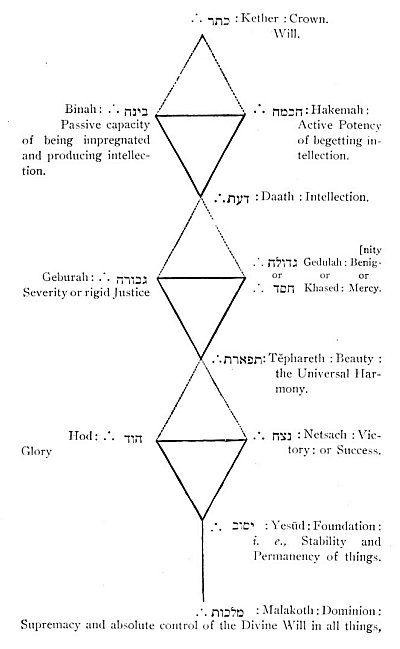Ignorance sees nothing necessary, and is self abandoned to a power tyrannical because defined by no rule, and paradoxical because permitting evil, while itself assumed to be unlimited, all-powerful, and perfectly good. A little knowledge, presuming the identification of the Supreme Cause with the inevitable certainty of perfect reason, but omitting the analysis or interpretation of it, leaves the mind chain-bound in the ascetic fatalism of the Stoic. Free-will, coupled with the universal rule of Chance; or Fatalism and Necessity, coupled with Omniscience and fixed and unalterable Law, these are the alternatives, between which the human
p. 695
mind has eternally vacillated. The Supernaturalists, contemplating a Being acting through impulse, though with superhuman wisdom, and considering the best courtier to be the most favored subject, combines contradictory expedients, inconsistently mixing the assertion of free action with the enervating service of petition; while he admits, in the words of a learned archbishop, that “if the production of the things we ask for depend on antecedent, natural, and necessary causes, our desires will be answered no less by the omission than the offering of prayers, which, therefore, are a vain thing.”
The last stage is that in which the religion of action is made legitimate through comprehension of its proper objects and conditions. Man becomes morally free only when both notions, that of Chance and that of incomprehensible Necessity, are displaced by that of Law. Law, as applied to the Universe, means that universal, providential pre-arrangement, whose conditions can be discerned and discretionally acted on by human intelligence. The sense of freedom arises when the individual independence develops itself according to its own laws, without external collisions or hindrance; that of constraint, where it is thwarted or confined by other Natures, or where, by combination of external forces, the individual force is compelled into a new direction. Moral choice would not exist safely, or even at all, unless it were bounded by conditions determining its preferences. Duty supposes a rule both intelligible and certain, since an uncertain rule would be unintelligible, and if unintelligible, there could be no responsibility. No law that is unknown can be obligatory; and that Roman Emperor was justly execrated, who pretended to promulgate his penal laws, by putting them up at such a height that none could read them.
Man commands results, only by selecting among the contingent the pre-ordained results most suited to his purposes. In regard to absolute or divine morality, meaning the final cause or purpose of those comprehensive laws which often seem harsh to the individual, because inflexibly just and impartial to the universal, speculation must take refuge in faith; the immediate and obvious purpose often bearing so small a proportion to a wider and unknown one, as to be relatively absorbed or lost. The rain that, unseasonable to me, ruins my hopes of an abundant crop, does so because it could not otherwise have blessed and prospered the crops of another kind of a whole neighboring district of country. The
p. 696
obvious purpose of a sudden storm of snow, or an unexpected change of wind, exposed to which I lose my life, bears small proportion to the great results which are to flow from that storm or wind over a whole continent. So always, of the good and ill which at first seemed irreconcilable and capriciously distributed, the one holds its ground, the other diminishes by being explained. In a world of a multitude of individuals, a world of action and exertion, a world affording, by the conflict of interests and the clashing of passions, any scope for the exercise of the manly and generous virtues, even Omnipotence cannot make it, that the comfort and convenience of one man alone shall always be consulted.
Thus the educated mind soon begins to appreciate the moral superiority of a system of law over one of capricious interference; and as the jumble of means and ends is brought into more intelligible perspective, partial or seeming good is cheerfully resigned for the disinterested and universal. Self-restraint is found not to imply self-sacrifice. The true meaning of what appeared to be Necessity is found to be, not arbitrary Power, but Strength and Force enlisted in the service of Intelligence. God having made us men, and placed us in a world of change and eternal renovation, with ample capacity and abundant means for rational enjoyment, we learn that it is folly to repine because we are not angels, inhabiting a world in which change and the clashing of interests and the conflicts of passion are unknown.

Moe is the founder of GnosticWarrior.com. He is a father, husband, author, martial arts black belt, and an expert in Gnosticism, the occult, and esotericism.





